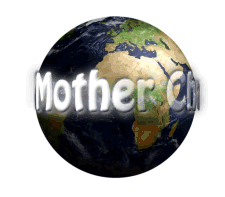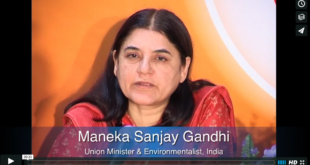In this interview with Mother Channel at COP 22, Marrakech, Emily Rushton speaks on her passion, being inspired by personal experience and working on behalf of Ora Taiao: New Zealand Climate and Health Council towards addressing Climate Injustice.
Moved by the climate injustice she saw in rural Asia, a registered nurse and member of OraTaiao: New Zealand’s Climate and Health Council, she decided to do something about it.
During almost two years of travelling, she met many people that climate change was affecting, but mostly during her nine months in Asia, when travelling through Laos, Burma and Indonesia.
The stories she heard from the rural families who were struggling made her realise that her own culture is what is inflicting innocent, self- sustainable villages to extreme weather conditions.
Believing this was creating food insecurity, Rushton looked into what she could do, and after returning home decided to travel around New Zealand using the best and most up-to-date research she could find and on behalf of the NZ Climate and Health Council, Ora Taiao, with the aim of educating health professionals and communities in order to help ourselves as well as others and learn to live more sustainably.
During her research, she was surprised to learn about animal agriculture’s role towards causes of climate change, being responsible for a quarter of the world’s emissions, and 90% of deforestation in the world. Stating it as a really significant factor, but also acknowledging the fact that there is minimal discussion about it and people are only somewhat aware of it, compared to fossil fuels which have been talked about for decades.
Talking about how much of an impact, she cited a comparison which had been made in this arena, viz; ‘If one were eating a completely plant-based diet and driving a 4×4 vehicle, that’s the same emission set as if one were eating a normal Western lifestyle diet and only riding a bicycle, never taking a bus, car or equal.’ This led to her realisation that each individual can personally make quite a significant difference to our emissions in our environment, just by making healthy lifestyle choices.
From a nursing perspective, she wanted to know what the health benefits and possible health issues would be in terms of cutting out animal products from her diet, and cites a personal example of the time when she was preparing to run a marathon, having never really run before, was really focused on the health impacts, only to discover that a vegan diet during athlete’s training periods, enhanced their performance. Rushton decided to change her diet and slowly transitioned from being a western diet omnivore, through the flexitarian stage, little or no red meat, she then started addressing other animal products like butter, milk, cheese, ice-cream, etc individually, which enabled her over a period of approximately 10 months, to transition completely to vegan.
Some contributors to Climate Change in terms of Food Issues, amongst others, e.g.
*GHG emissions from some foods are high, e.g. 18% from animal agriculture globally
*Environmental change = Food production disruption
*Disease burdens related to our food choices
*75% of water worldwide is used by farmers.
Foods and dietary patterns that are healthy, low-cost and environmentally sustainable carry a very strong argument for optimisation modelling around the world in terms of, for example; Diets being cheaper, healthier and lower emissions, public institutions to adopt models and governments to use education, tax and policy to implement healthier living and benefits.
To quote Emily Rushton in closing – ‘YOU ~ can make a huge difference in your everyday life!
Links:
draxe.com/flexitarian/ Enter the world of Flexitarians
orataiao.org.nz/climate_change_and_health OraTaiao ~ Climate Change & Health
 Mother Channel Environmental, climate change news and media.
Mother Channel Environmental, climate change news and media.

